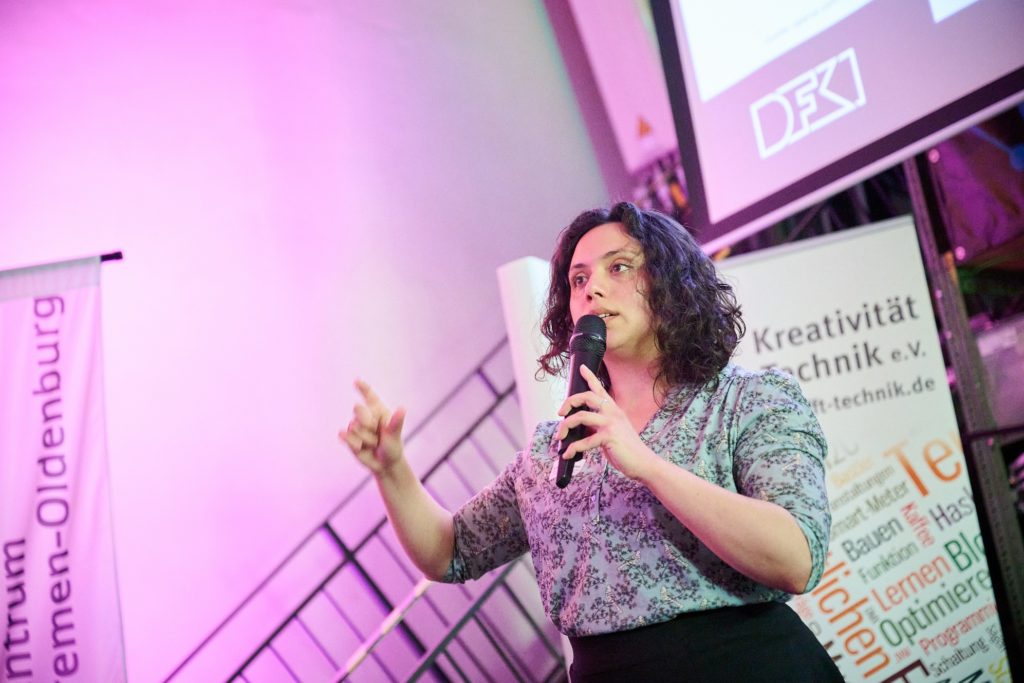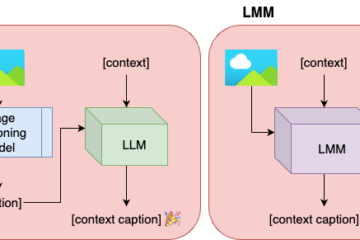At the end of 2023, Aliki Anagnostopoulou from IML gave an interview for the WEITBLICK magazine (issue 03/23), which is published by the business development agency JadeBay GmbH Entwicklungsgesellschaft:
The future looks promising
AI experts simplify access to new technologies
Over the past 30 years, the German Research Center for Artificial Intelligence (DFKI) has developed into the world’s largest center for artificial intelligence research. Aliki Anagnostopoulou works in the “Interactive Machine Learning” (IML) research department. We asked her what opportunities research sees for the implementation of AI in small and medium-sized enterprises (SMEs).
How do you see the future of AI in SMEs in Germany?
It appears promising, as companies are increasingly recognizing that AI technologies also offer considerable advantages for small and medium-sized enterprises. As many SMEs have excellent domain and industry knowledge, there are opportunities and growth potential to successfully embed AI technologies into their business strategies. Personalization and individualization of services (servitization) are the areas where we will see dynamic developments in the near future. However, the successful integration of AI requires not only technological adaptations, but also collaboration with research institutes, platform operators, domain experts and increasingly targeted investment in training for employees.
What qualifications do employees in SMEs need to be able to work effectively with AI systems?
They need basic knowledge of AI concepts and transformation processes as well as strong skills in processing and interpreting data. Basic programming skills, an understanding of statistics and applied mathematics, and skills in using specific AI tools and platforms are also important. Training should also cover ethical considerations for AI use, AI law and data protection principles. The ability to collaborate with AI systems, creativity and problem-solving skills are also crucial.
What paths do you recommend for SMEs to implement AI solutions?
Depending on the type of application, the scope of the project and the specific requirements, the paths can vary greatly. Access to qualified AI experts is crucial (for example, teams of data scientists, domain experts and ML engineers).
SMEs may need to invest in training for their existing staff or bring in external experts to ensure the required expertise. To overcome the costs of purchasing AI software and hardware (GPU), data collection, cleansing and storage, and regular maintenance of AI systems, SMEs can work with external service providers, setups or research institutes, train employees, and use funding to support them.
That all sounds very complex. Where can SMEs find support?
Cooperation with research institutions such as DFKI is helpful, but also with other companies and innovation networks. As DFKI Interactive Machine Learning, we offer the Core IML, our own platform for collaboration. This provides a first opportunity for SMEs to partner with a DFKI and is open for collaboration opportunities. We cover a wide range of topics related to AI. The DFKI Academy offers customized training on AI topics upon request.

Aliki Anagnostopoulou studied Greek Studies at the University of Athens and then Linguistics and Computational Linguistics at the University of Stuttgart. Since November 2021, she has been working at DFKI in the Interactive Machine Learning research department, under the direction of Prof. Dr. Daniel Sonntag. At the same time, she is doing her doctorate at the Carl-von-Ossietzky University of Oldenburg. As part of the NLP group, she works on topics such as interactive image captioning, explainability, and large language models.


